My name is Terence John Farrell. I enlisted in the Royal New Zealand Artillery in 1967 and did one tour to Vietnam during 1968-1969.
I did my basic training in Burnham as Waiouru was filled to capacity at the time with troops training for Vietnam. My training while in NZ was on the 105mm Pack Howitzer.
My twin brother and I were born in 1946 in Lower Hutt and both went to Naenae College. He served in Saigon with HQ V Force and we were the only set of twins to serve in a war zone at the same time since WW2. Miles Singe, who flew to Nui Dat with my brother in early 1969, took a photo of us to commemorate the achievement.
My time in the services was very memorable but sometimes I did buck the system and spent a week in the now demolished Ardmore Service Corrections Facility.
I had trained as a driver with 13 Transport Coy, RNZA Transport Division, and a Gun Number while in Papakura Military Camp.
I embarked to Vietnam in July 1968 to replace one of ours who had died by taking his own life. Gunner Lyes’ death was not recognised as a war casualty until many years later after a protest by a number of us to have this recognised as a war-related casualty.
I was based in Nui Dat first, serving in 13 Transport Coy as a driver for three months driving to Baria and FSB Horseshoe on a regular basis. I then served as a No. 3 (laying the sites) on Gun Number 6 (known as ‘Foxtrot Gun’) — a 105mm M1A1 Howitzer — under Gun Sgt M. Makoare for the rest of my tour.
I was given Gunner Lyes’ tent to stay in, which to me always had the feeling of deep emotion, and because of the situation, no Maori would enter the tent, which was understandable but also an embarrassment; this tent should have been erased at the time of the soldier’s death, who was a friend of mine in NZ.
At that time, a tent caught fire and two of the battery lost all their belongings. After this incident, we built a fire truck out of an old Land Rover where a pump was fitted which drove off the PTO at the front and a tank fitted on the back; this was never needed but showed just how Kiwi ingenuity took over after the event.
While in Nam the old WW2 tents were replaced with what was known as the ‘tin sheds’ and the ablutions block was renewed, after an incident in which a smoke grenade was released while a serviceman was sitting doing his business.
The New Zealand infantry company in Nam during my tour was Victor 3. I used to leave our gun lines illegally to go socialise with them; a few of the battery did this to enjoy the company of others we had met back in New Zealand. Four Troop SAS arrived in Nui Dat while I was there and setup their camp, which was known as SAS Hill.
I contacted malaria and was medevaced by chopper from a Fire Support Base and sent to an American hospital in Vung Tau as the 1st Australian Field Hospital was full of troops who had contacted a new and vicious strain of malaria.
During guard duty on the Connex Tower with another soldier, we captured three Vietcong who approached the gates of Nui Dat in a suspicious manner. We later found out they were sympathisers to our cause, but at the time, we were unaware of this. I made them lie on the ground until the MPs arrived from 1ATF to take them into custody; no official recognition was given for this feat, which could have had me killed or wounded.
At that time, the battery was out conducting fire support for the Australians from the Horseshoe and the Battery Headquarters only had a small skeleton crew in base.
We also did regular jungle patrols, and conducted a search and destroy sweep on a village to rout out the Vietcong on one occasion.
The Vietnamese people were a lovely race and I did return in 2010 to the ANZAC Ceremony at Long Tan with my wife.
Terry Farrell






